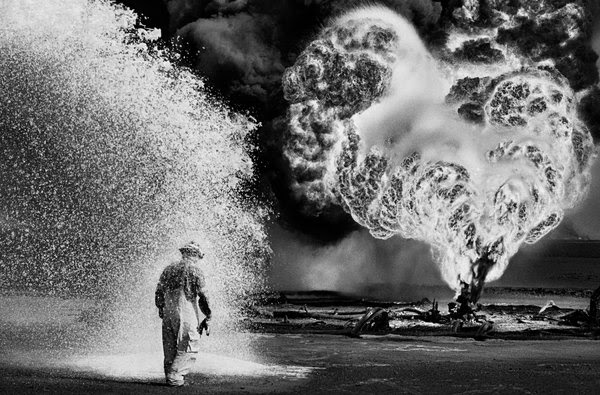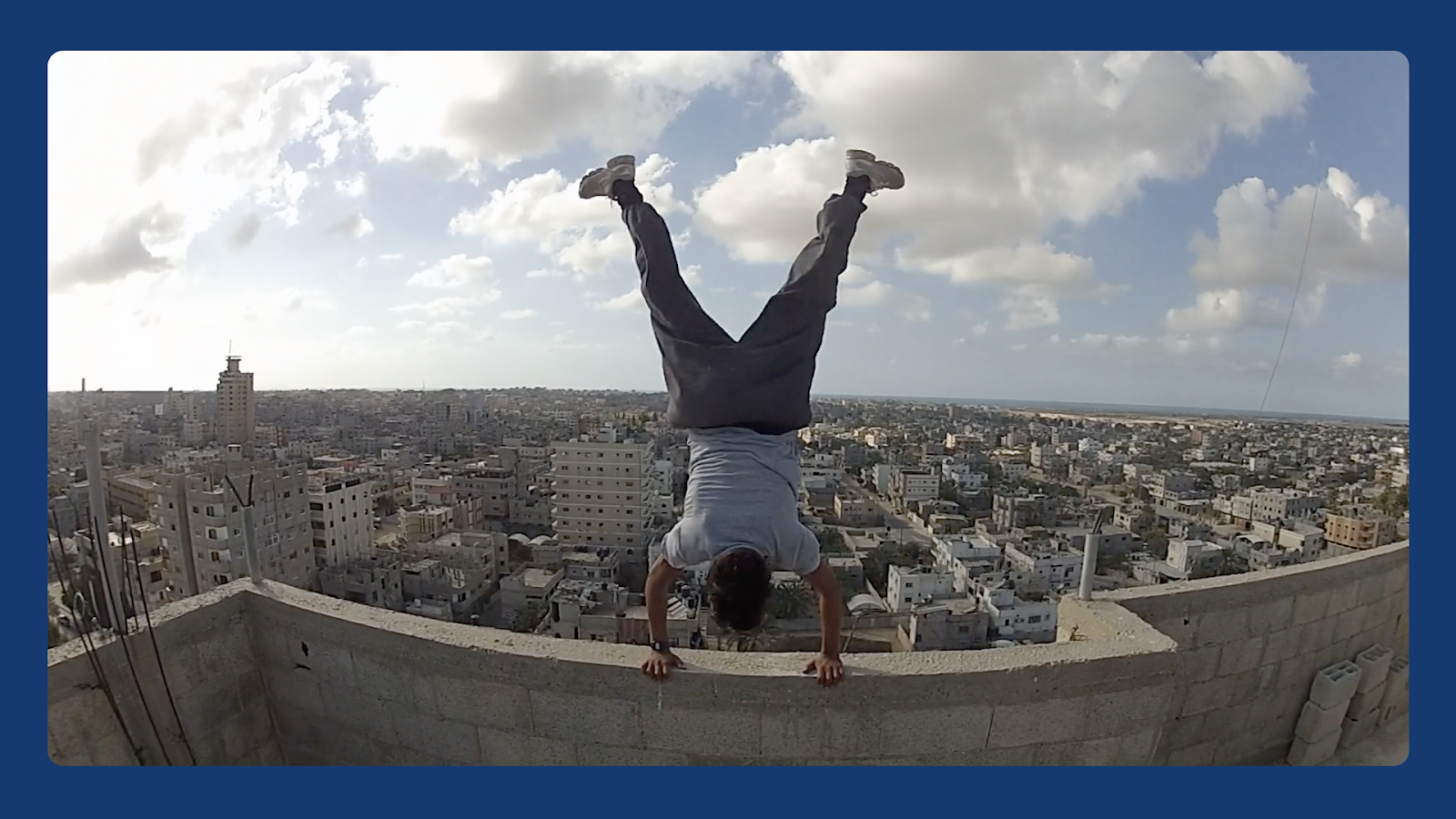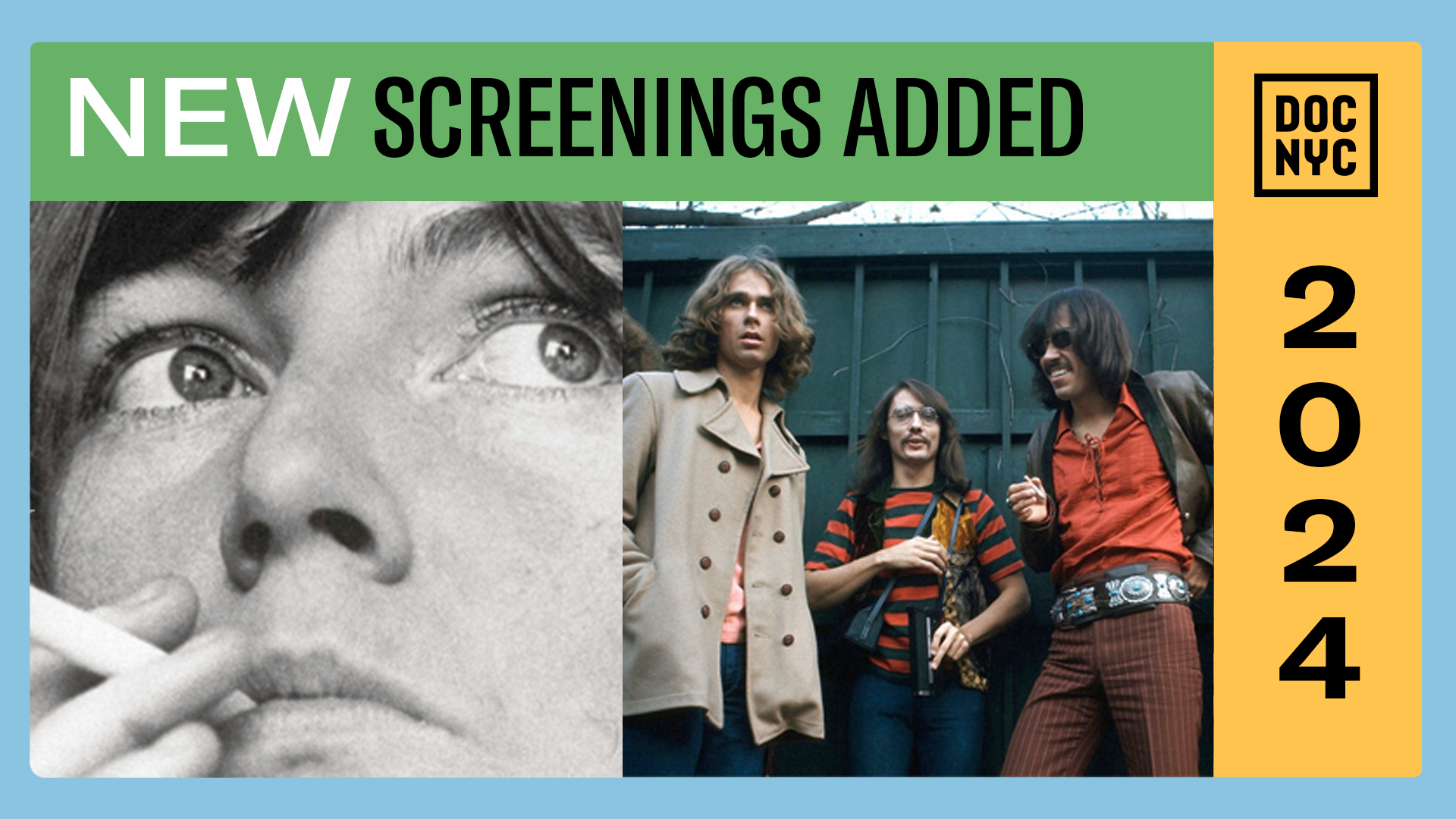DOC NYC in The New York Times

THE NEW YORK TIMES
MOVIES | CRITIC’S NOTEBOOK
Images That Dare You to Turn Away
The DOC NYC Film Festival Returns
Credit: Sebastião Salgado/Amazonas Images/Sony Pictures Classics
To hell and back describes the psychological journey of the great Brazilian photographer Sebastião Salgado in the magnificent documentary “The Salt of the Earth.” Directed by Wim Wenders and Juliano Ribeiro Salgado, Mr. Salgado’s son, the film is a crowning moment in DOC NYC, the nonfiction film festival starting on Thursday. Some of Mr. Salgado’s black-and-white photos are grisly, Boschian tableaus of the world’s horrors with the formal beauty and grand composition of paintings by the Renaissance masters.
With its hard-to-reconcile juxtapositions of the beautiful and the grotesque,“The Salt of the Earth” embodies the contradictions of the documentary form itself. In a sense, the entire festival is a journey to hell and back, in which honesty and truthfulness are often in conflict with painful images on which people would rather not dwell. Who really wants to see photos of corpses piled in a church in Rwanda? But once confronted with such images, who would dare look away?

“Desert Hell, Kuwait,” a 1991 photograph from Sebastião Salgado’s “Workers” series, is in the documentary “The Salt of the Earth,” directed by Wim Wenders and Juliano Ribeiro Salgado. Credit: Sebastião Salgado/Amazonas Images/Sony Pictures Classics
DOC NYC, which takes place at three downtown theaters, was established in 2010 by Thom Powers, the documentary programmer of the Toronto International Film Festival, and Raphaela Neihausen, his wife. In a recent interview, Mr. Powers, DOC NYC’s artistic director, compared it in size and scope to other major stops on the nonfiction festival circuit, like the I.D.F.A. in Amsterdam and Hot Docs in Toronto. Although many of DOC NYC’s 90-plus selections have played elsewhere — “The Salt of the Earth” won a special prize at Cannes — the festival does have several world premieres.
One of the most anticipated may be the Friday screening of Amy Berg’s “An Open Secret,” described as an exposé of the sexual exploitation, by movie industry bigwigs, of children who go to Hollywood seeking fame. At the last minute, an advance press screening was canceled. But make no mistake: Ms. Berg, whose credits include “Deliver Us From Evil” and “West of Memphis,”is not a cheap sensationalist.
The opening-night film, David Thorpe’s “Do I Sound Gay?,” addresses a touchy subject for gay men at a time when same-sex marriage is increasingly accepted, while in many schools, perceived effeminacy is still subject to bullying and persecution. Mr. Thorpe frets about his high, emphatic voice and consults acting coaches and linguists to try to change it.
Discussing the topic with gay friends, who also don’t like their voices, he discovers that most are acutely aware of how they sound and are resigned to it. Some would like to change that perception, while the more defiant embrace their voices in a spirit of gay pride and personal self-expression. Although the film doesn’t explore deeper questions about body language and sexual orientation, it cautiously lifts the lid on a taboo subject with a welcoming, lighthearted attitude.

The director Wim Wenders, left, with Sebastião Salgado, whose images are grisly and beautiful. Credit: Sebastião Salgado/Amazonas Images/Sony Pictures Classics.
Closing the festival, on Nov. 20, is “The Yes Men Are Revolting,” by the comic performance artists and media pranksters who go by the pseudonyms Andy Bichlbaum and Mike Bonanno. Also known as the Yes Men, they are experts at impersonating corporate shills and government bureaucrats in bogus, sometimes hilarious news conferences that undermine the agendas of the institutions they pretend to represent. In their riskiest stunt, Mr. Bichlbaum posed as a spokesman for the U.S. Chamber of Commerce and announced its recommendation of a carbon tax on polluters. The stunt earned them a lawsuit that was later dropped.
The DOC NYC festival has an acute sense of the tradition it is celebrating. Its Short List section provides new opportunities to see recent acclaimed documentaries. Included are “The Case Against 8” (about the overturning of California’s Proposition 8, which banned same-sex marriage); “Citizenfour” (interviews with Edward J. Snowden, the former National Security Agency contractor accused of leaking secret documents); and “Finding Vivian Maier” (a portrait of the unsung street photographer).
“Merchants of Doubt,” recently shown at the New York Film Festival, analyzes the campaign by the fossil fuel industry and its allies to sow enough doubt about the scientific consensus on climate change to postpone action. The film compares the industry’s strategies to those used by the tobacco companies in the 1970s to confuse the public over the dangers of smoking.
Deception and manipulation are also the focus of Marjorie Sturm’s “The Cult of JT LeRoy,” a fascinating account of the fraud perpetrated by Laura Albert, whose alter ego, JT LeRoy, pretended to be an abused teenager and, until the fraud was detected, was hailed as a wunderkind by the credulous publishing establishment. The film holds a mirror to the underside of literary celebrity and its attendant hype.
More modest, but noteworthy, are two down-to-earth documentaries that offer ground-level views of struggling, everyday New Yorkers, the very people who, in the words of a restaurant worker, make the city run. In Rachel Lears’s and Robin Blotnick’s “The Hand That Feeds,” the exploited service workers at a Hot & Crusty bakery on the Upper East Side organize to form a union with the help of Occupy activists. In Stephanie Wang-Breal’s“Tough Love,” parents in New York and Seattle, who lost custody of their children to child protection agencies, fight to win back the court’s trust.
The seesaw between hope and despair in socially engaged documentaries is dramatically mirrored in “The Salt of the Earth.” Near the end, Mr. Salgado, after returning to Brazil from Africa, delivers a scathing diatribe against the human species. At his once-fertile family ranch, which has been devastated by deforestation, he and Lélia Wanick Salgado, his wife and collaborator of 50 years, lead a drive to replant the parched landscape with two million trees. Mr. Salgado may have given up on humanity, but he hasn’t given up on the planet. Miraculously, the wildlife that disappeared from the area returns, and the world is reborn.
DOC NYC runs through Nov. 20. Screenings are at the SVA Theater, 333 West 23rd Street, Chelsea; Bow Tie Chelsea Cinemas, 260 West 23rd Street; and the IFC Center, 323 Avenue of the Americas, at Third Street, Greenwich Village; docnyc.net.



